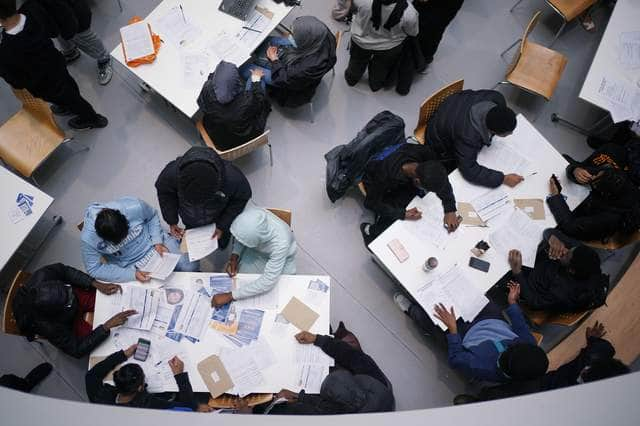GCSE results day 2022: Why are West Midlands grades lower than the south?
This article contains affiliate links. We may earn a small commission on items purchased through this article, but that does not affect our editorial judgement.
and live on Freeview channel 276
This year’s GCSE results have shown significant regional differences, with the proportion of students achieving top grades much higher in the south compared to the West Midlands.
The 2022 GCSE results have revealed how pupils living in the south achieved higher grades than those in the Midlands and the North.
Advertisement
Hide AdAdvertisement
Hide AdIn London, almost a third of grades were at 7 (A) or above, with the capital seeing the highest percentage of top results. The South East and East of England closely followed, at 29.1% and 26.2%. The South West also saw 25.2% of grades at 7 (A) or above, and 29.2% of pupils in the South East were handed top marks.


How does this compare to the West Midlands?
The percentages of the higher grades drop further north in the Midlands and in the North West.
Across the Midlands and the north, the North West had the highest proportion of A+ grades at 23.1%, while the Midlands had similar top grades, with the East Midlands at 22.5% and the West Midlands at 22.8%.
GCSE A grades were 10% higher in London than the West Midlands. A grades achieved were also 4% higher in the East of England than the West Midlands, and 7% higher in the South East.
Advertisement
Hide AdAdvertisement
Hide AdCompared to pre-pandemic times, London pupils have seen the biggest jump in GCSE grades, but the proportion of top grades increased in all regions compared with 2019. However the steepest increase was in capital (up 7% to 32.6%) and the lowest in the East Midlands (up 4.2% to 22.5%).
Loading....
Business leaders have called on the government to address what they say is a deepening education divide between the north and the south, by giving schools more resources and funding.
While Chris Zarraga said this year’s GCSE results in England are a “map of the impact” of the pandemic and its disproportionate effects.
The director of Schools North East, which describes itself as dedicated to improving outcomes for young people in the north-east of England, called for an urgent “recovery plan” recognising differences in different areas. He said: “We are incredibly proud of the students and school staff in our region and all they have achieved despite unprecedented circumstances.
Loading....
Advertisement
Hide AdAdvertisement
Hide Ad“However, the results are also a ‘map’ of the impact of Covid, reflecting the disproportionate affect the pandemic has had on our region and the exacerbation of serious perennial issues, especially that of long-term deprivation. Schools urgently need a properly thought through and resourced ‘recovery’ plan, that recognises the regional contexts schools operate in, with a long-term view of education and a curriculum that is appropriate and accessible to all students and schools.”
A message from the editor:
Thank you for reading. BirminghamWorld is Birmingham’s latest news website, championing everything that is great about our city - reporting on news, lifestyle and sport. We want to start a community among our readers, so please follow us on Facebook,Twitter and Instagram, and keep the conversation going.
Comment Guidelines
National World encourages reader discussion on our stories. User feedback, insights and back-and-forth exchanges add a rich layer of context to reporting. Please review our Community Guidelines before commenting.
